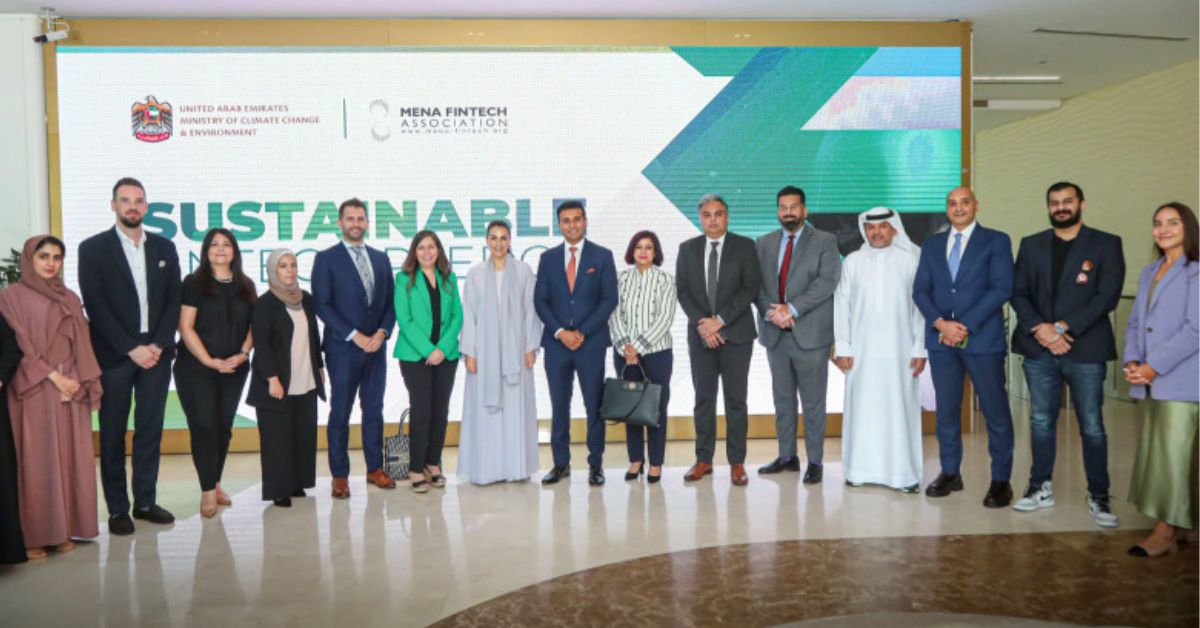DUBAI, UAE — As 2023 nears its end, the startup landscape in the Middle East and North Africa (MENA) region is undergoing a significant and exciting transformation. Numerous companies have raised substantial funds to support their ambitious goals, propelled by a surge in innovation and a favorable investment climate.
These businesses in the MENA region are demonstrating their entrepreneurial prowess as they skillfully navigate market dynamics, leverage technology, and attract funding, thereby crafting a narrative of progress and resilience.
November 2023 marked a record-breaking period in funding, with MENA startups securing an astonishing $764 million across 42 rounds. This amount represents a dramatic 390 percent increase month-over-month (MoM) and a notable 74 percent increase year-over-year (YoY). According to a report by Wamda, this figure is the highest recorded for the year.
The funding landscape experienced a revival at all stages, with mega-rounds playing a leading role. Key funding rounds included a $250 million debt round by Saudi Arabia-based Tamara, a $200 million Series D round by Tabby, and $130 million raised by MNT-halan in securitized bonds. These mega-rounds together accounted for nearly 76 percent of the total capital influx in November, emphasizing the dominance of high-value transactions in the region.
Saudi Arabia stood out as the top fundraising hub, securing $338 million across nine deals, while the United Arab Emirates (UAE) closely followed with $284 million spread across 22 deals. Egypt secured the third position, gathering $130.5 million in funding through five rounds.
Furthermore, startups based in Kuwait, Morocco, Oman, and Tunisia collectively received the remaining capital, highlighting diverse regional participation in this funding surge.
The fintech sector led in funding amounts, notably driven by significant contributions from Tamara and Tabby. Following closely, the SuperApp sector, buoyed by MNT-Halan’s substantial round, claimed the second spot.

Meanwhile, edtech, with $41.4 million, stood as a distant third in the funding hierarchy. The landscape also saw considerable rounds in other sectors, including Retailo’s $15 million, Ajras’ $28 million, Flow48’s $25 million, and Immensa’s $20 million.
Global investment participation was remarkable, with 10 deals drawing direct global investment, especially from US-based investors. UAE-based investors were the most active regionally, participating in 21 deals. Modus Capital stood out as the most prolific investor, investing $2.8 million across eight startups in its flagship venture builder program. Saudi Arabian investors were next in line, contributing to 10 deals.
However, alongside these achievements, a significant gender disparity remained. Male-founded startups overwhelmingly dominated the funding, securing a massive $753 million across 29 deals, which constituted 98.5 percent of the total funds.
In stark contrast, female founders received less than 2 percent of the capital, totaling $9 million. Teams co-founded by male and female entrepreneurs garnered the remaining 0.2 percent.
The report also noted that nine startups, including Nowmoney, Awfar, Lynk, Lath, Chari, Wayup Sport, Winshot, Akhdar, and Farcana, kept their funding amounts confidential. A conservative estimate of $100,000 was assigned to these undisclosed amounts.
As the MENA startup ecosystem continues its record-breaking trend, the exceptional achievements of November 2023 point to a promising future for innovation, investment, and regional economic growth. The diversity of sectors, the engagement of global investors, and the imperative to address gender disparities are all key factors shaping a dynamic and inclusive startup ecosystem in the MENA region.
At A Glance Significant Transformation in MENA Startup Landscape: 2023 marks a period of substantial and exciting changes in the Middle East and North Africa (MENA) startup ecosystem. Surge in Funding and Innovation: Companies in the MENA region have raised considerable funds, fueled by innovative strategies and a favorable investment climate. Record-Breaking Funding in November 2023: MENA startups achieved a historic milestone by securing $764 million across 42 funding rounds, the highest for the year. Dramatic Increase in Investment: This funding represents a 390% month-over-month increase and a 74% year-over-year increase. Dominance of Mega-Rounds: Large funding rounds, including $250 million by Tamara, $200 million by Tabby, and $130 million by MNT-halan, played a pivotal role in the investment surge. Leading Fundraising Hubs: Saudi Arabia, the UAE, and Egypt emerged as top fundraising countries in the MENA region. Diverse Regional Participation: Startups in Kuwait, Morocco, Oman, and Tunisia also received significant funding, highlighting a broad regional engagement. Fintech Sector Leading in Funding: The fintech sector, led by Tamara and Tabby, secured the most significant portion of the funding. Variety in Sectorial Funding: Other notable sectors with substantial funding included SuperApp, edtech, and various other industries. Global Investment Interest: The region attracted considerable global investment, especially from US-based investors. Active Regional Investor Participation: UAE-based investors were notably active, with Modus Capital being the most prolific regional investor. Gender Disparity in Startup Funding: Male-founded startups dominated the funding landscape, while female-founded startups received less than 2% of total funds. Confidentiality in Funding Disclosures: Nine startups chose to keep their funding amounts private. Promising Outlook for MENA Startups: Despite challenges, the MENA startup ecosystem is on a trajectory of innovation, investment, and regional economic growth. Focus on Diversity and Inclusivity: Addressing gender disparities and engaging global investors are essential for shaping a dynamic and inclusive startup ecosystem in the region.

